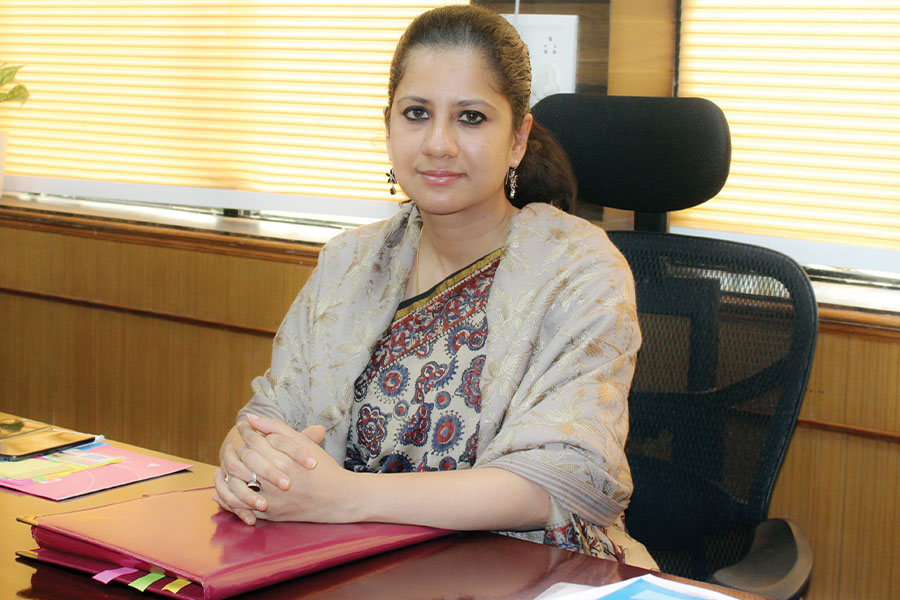Jammu & Kashmir: The food paradise
Known for its exquisite landscapes and rich agro-diversity, Jammu & Kashmir offers a veritable treasure trove of opportunities to F&B businesses. The state has 3 food parks, 10 industrial parks and 6 cold chain projects, providing ample opportunities to investors to set up food processing units.

The agricultural landscape of Jammu and Kashmir covers diverse varieties of crops grown on terraced slopes, each of them adapted to the local conditions. The variations in agro-climatic and soil conditions present enormous potential for bio-diversification. Thus, foodgrain production of J&K has trebled since 1950-51. Rice is a staple crop, while farmers in the state also cultivate corn, millet, pulses, cotton, wheat, barley and a number of temperate fruits and vegetables.
While Jammu region is home to high quality ‘Basmati’, ‘Rajmash’, Black Caraway (‘zeera’) etc., Kashmir region is rich in high quality Saffron, ‘Zeera’, fresh and dry temperate fruits and commercial floriculture. Kashmiri saffron, in view of its unique aroma and flavour, is recognised as the most expensive spice in the world. It is considered the world’s best spice because of its scientifically proven superior qualities. Ladakh region is endowed with high quality apricots and seabuckthorn berry etc.
In 2018-19, an approximate area of 3.31 lakh hectares was under horticulture production, which is considered a sector with huge potential. Apples, pears, peaches, walnuts, almonds, and cherries are among the major exports of Jammu & Kashmir. The state’s horticulture products are well known for quality and taste in international markets. The government has taken a number of capacity building initiatives over the years, such as introduction of improved varieties, mechanization, establishment of fruit mandis, technological support, awareness and publicity initiatives and research/extension etc.
The State Agriculture Policy aims to help actualize the vast untapped growth potential of the agriculture, promote value addition, accelerate the growth of agribusiness, create employment in rural areas, secure fair standard of living for the farmers and agricultural workers and their families, discourage migration to urban areas and face the challenges arising out of economic liberalization, globalization and climate change.
Low-cost green house technology and hybrid vegetable production in the open have been given a special thrust. Commercial floriculture and cultivation of aromatic and medicinal plants, development of apiculture and mushrooms, on-farm irrigation management and diversification to high value agriculture have shown substantial growth over the years.
Being the highest producer of temperate fruits, J&K offers entrepreneurs with lucrative opportunities for processing of fruits like apples, cherries, apricots, pears, plums, etc. Businesses can also explore avenues for processing of spices like saffron, red chillies and cumin, dry fruits like walnuts and almonds, as well as cereals like rice, wheat and maize.
The Jammu & Kashmir Draft Agriculture, Horticulture & Food Processing Policy aims to attract investments for setting up units in agri-business, food processing and horticulture sectors in Jammu & Kashmir. The state government has envisaged a number of policy interventions in this regard. It is planned to set up an agri-export facilitation cell to handhold food processing and agri-business units for exports of products from the state.
Moreover, the benefits under the existing scheme of Government of India viz; Pradhan Mantri Kisan Sampada Yojana (PMKSY) shall be applicable to potential investors as per the scheme guidelines. Apart from this, relevant provisions under the Jammu and Kashmir Industrial Promotion Policy 2020 shall also be applicable. J&K has 3 food parks, 10 industrial parks and 6 cold chain projects, providing ample opportunities to investors to set up food processing units. The state extends a hearty welcome to interested businesses to explore the rich agro-diversity of the state and synergise with the state government’s endeavours to bring lasting prosperity to its citizens.
Ankita Kar, IRAS, as Managing Director, J&K Trade Promotion Organization. This article was originally published in Fresh – The Indusfood Chronicle, the official publication of Indusfood, India’s largest B2B trade show organised by the Trade Promotion Council of India.













Leave a comment